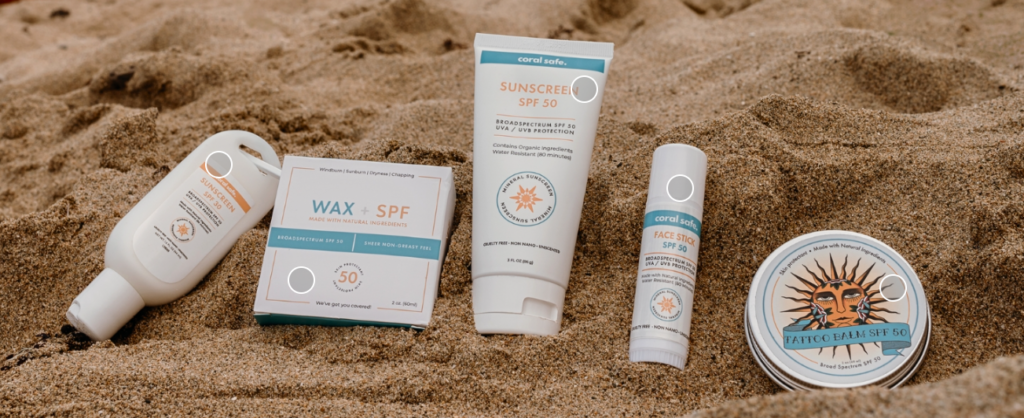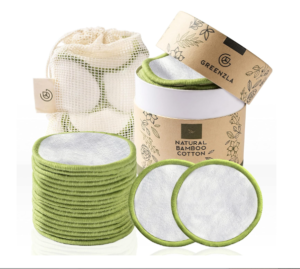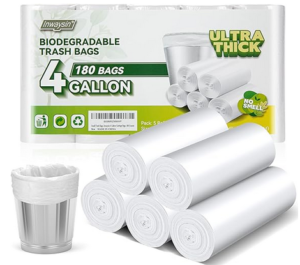Beautiful Plants For Your Interior

Sunscreen: Everyone loves their skin and wants that their skin will be beautiful, young, scar free and glowing always but in today’s busy life it may not be possible for everyone specially for those who goes outside for their work.
So if you go outside for your work, you must have applied sunscreens on your skin because they will protect your skin from harmful Ultra Violet Rays. But most of the sunscreens we use, are made from non biodegradable products which are harmful for our planet, nature and environment.
What would we do now? Should we stop applying sunscreen on our face? The answer is no but we need to change them from non biodegrade to biodegradable. Yes you heard it right! Eco friendly sunscreens are available. By using them, not only our skin will be protected but our planet, nature and environment will also be protected. So, today in this blog we will let you know how can you protect your skin with nature.
https://www.youtube.com/watch?v=Wx_hFdHYzns
Join our telegram channel https://t.me/naturesupprter
What is a sunscreen?
It is a product that protects our skin against harmful UV Rays. It can also protects us from sunburn and skin cancer that are causes of harmful UV Rays. Sunscreens come in form of lotion, sprays, gel, foam, stick, and powder. It is a common supplement of our clothing just like sunglasses, sunhats and umbrella.

History
Early civilizations used a variety of plant products to help protect the skin from sun damage. They used rice, jasmine and lupine extracts for protecting their skin. Thousands years ago Zinc Oxide was also used as skin protector.
The very first ultraviolet filters were produced in 1928 and first sunscreen invented by an Australian chemist H. A. Milton Blake in 1932 by formulating with the UV filter Phenyl salicylate at a concentration of 10%. L’Oreal released its first sunscreen product in 1936 made by a French chemist Eugene Schueller.
In 1944 during The World War II, US military sunscreen for their forces because their soldiers were facing sunburn problems. Water proof sunscreen was invented in 1977.
| Year | Event | Details |
|---|---|---|
| 1928 | First Ultraviolet Filters | The very first ultraviolet filters were produced. |
| 1932 | First Sunscreen Invented | Australian chemist H. A. Milton Blake formulated the first sunscreen using the UV filter Phenyl salicylate at a concentration of 10%. |
| 1936 | L’Oreal’s First Sunscreen Product | French chemist Eugene Schueller released the first sunscreen product by L’Oreal. |
| 1944 | World War II Military Sunscreen | During World War II, the US military developed sunscreen to protect their soldiers from sunburn problems. |
| 1977 | Waterproof Sunscreen Invented | The invention of waterproof sunscreen. |
Difference between regular and eco friendly sunscreen
Regular sunscreens contain other ingredients that may irritate sensitive skin or contain harmful microplastics. These sunscreens offer sun protection, they may come at a cost to the environment and your skin.
These are known as “chemical sunscreens.” These sunscreens contain dangerous ingredients like Oxybenzone and Octinoxate that absorb UV rays and convert them into heat, which is released from the skin. Oxybenzone and Octinoxate can contribute to coral bleaching, harming delicate coral reefs.
Eco friendly sunscreens take a different approach to sun protection. They primarily use mineral ingredients like zinc oxide and titanium dioxide. These minerals sit on top of the skin, reflecting UV rays away from the body. This physical barrier approach is considered gentler on the environment and less likely to harm coral reefs.
| Aspect | Regular Sunscreens | Eco-Friendly Sunscreens |
|---|---|---|
| Ingredients | Chemical ingredients like Oxybenzone and Octinoxate | Mineral ingredients like Zinc Oxide and Titanium Dioxide |
| UV Protection Method | Absorb UV rays and convert them into heat | Reflect UV rays away from the body |
| Environmental Impact | May contain harmful microplastics, contribute to coral bleaching | Gentler on the environment, less likely to harm coral reefs |
| Skin Sensitivity | May irritate sensitive skin | Generally gentler on the skin |
| Examples | Oxybenzone, Octinoxate | Zinc Oxide, Titanium Dioxide |
| Coral Reef Safety | Can harm delicate coral reefs | Safer for coral reefs |
Benefits of eco friendly sunscreens
They have a lots of benefits which are not only beneficial for our skin but also beneficial for our planet, nature and environment.
Follow us on twitter https://twitter.com/ntspt24
Biodegradable ingredients
Eco friendly sunscreens contain special ingredients specially designed to break down faster like a fallen leaf decomposing. This natural breakdown process minimizes the sunscreen’s impact on oceans, lakes, and other ecosystems.

Most of them skip the chemicals found in regular versions that can irritate sensitive skin. Instead, they use natural and organic ingredients. These gentler options can calm and nourish sensitive skin, reducing redness and irritation.
Non-Nano particles
Regular sunscreens use tiny mineral particles called nanoparticles. These are potentially harm ocean ecosystems. But eco-friendly sunscreens skip the nanoparticles. They use larger mineral particles that stay on the skin’s surface, offering sun protection without the same environmental concerns.
Reef Safe Sunscreen
Our sunscreen is approved by Hawaii & Mexico, and provides eco-friendly and biodegradable sun protection. Our water-resistant formula is a top-rated choice among beachgoers, offering expert sun protection without the toxic chemicals associated with other sunscreens.

Buy at Amazon https://www.amazon.com/dp/B09J1XJRZ7//?tag=naturesupport-20
Made in USA
Our sunscreen is made in the USA with natural ingredients, prioritizing your safety and quality. We skip Oxybenzone and Octinoxate, which can irritate skin and harm coral reefs.
Water Resistant
It is a water-resistant and non-greasy product which is perfect for hikes, swims, or globetrotting. It’s lightweight is similar to Korean sunscreens which are known for their comfortable and non-sticky formulas. This sunscreen will keep you protected without feeling heavy.
Mineral
This sunscreen comes with zinc oxide for mineral based sun protection and Vitamin E to nourish your skin. It creates an invisible shield. Unlike some mineral sunscreens, this formula goes on reflecting UV rays without leaving a white cast.
| Feature | Details |
|---|---|
| Material Feature | Biodegradable |
| Manufacturer | Coral Safe Sun Protection |
| Skin Type | All |
| Scent | Unscented |
| Active Ingredients | Zinc Oxide |
| Weight | 0.5 ounces |
| Recommended Uses | Outdoor activities, swimming, sports |
| Customer Ratings | 4.4 out of 5 stars |
| Sun Protection Rating | 4.4 out of 5 stars |
Steps to Apply
| Step | Description |
|---|---|
| Step 1: Clean and Dry Skin | Before applying sunscreen, ensure your skin is clean and dry. This sunscreen is designed to stay on the skin surface. |
| Step 2: Let’s Get Started! | Apply a small amount of mineral sunscreen and gently massage it onto your skin for even coverage. A little goes a long way! |
| Step 3: Keep Up the Momentum | Apply small amounts of sunscreen at a time, covering all exposed areas of your face. Don’t miss any spots! |
| Step 4: Maintain the Shield | Reapply sunscreen as needed, especially after swimming or sweating, to keep your skin protected from harmful UV rays. |
Conclusion
All of us want beautiful, healthy, young and glowing skin. For that we use different types of products in our daily life, specially if we go outside for our work. We knew that UV Rays are very harmful for our skin. To protect our skin we need to use sunscreens. These sunscreens are available in chemical eco friendly types.
Eco friendly sunscreen not only protect our skin but also protect our planet, nature and environment. If you like this blog, please let us know through your valuable comments. Thankyou!



